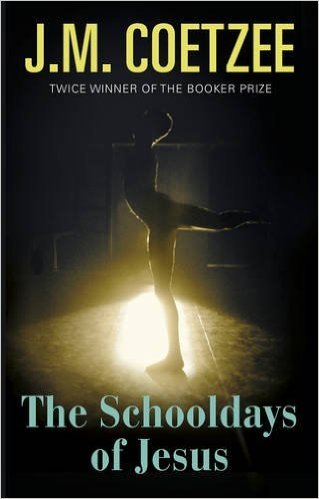What do you think?
Rate this book


260 pages, Paperback
First published August 1, 2016
He is about to answer {another of David’s interminable questions} about to produce the correct, patient educative words, when something wells up inside him. Anger? No. Irritation? No more than that. Despair?
Perhaps we should be scouring the world not for the true answer but for the true question.
Can you make sense of this? He whispers
He, Simón, soon loses interest.
No I don’t call it philosophy. Privately, I call it claptrap.
To his and Inés' enquiries about his schooldays the boy responds briefly and reluctantly. Yes, he likes señor Arroyo. Yes, they are learning songs. No, they have not had reading lessons. No, they do not do sums. About the mysterious arc that señora Arroyo sounds at the end of the day he will say nothing.
'Inés showed me your dance chart,' he says. 'What are the numbers for? Are they positions for your feet?'
'It's the stars,' says the boy. 'It's astrology. You close your eyes while you dance and you can see the stars in your head.'
'What about counting beats? Doesn't señor Arroyo count the beats for you while you dance?'
'No. You just dance. Dancing is the same as counting.'
'So señor Arroyo just plays and you just dance. It doesn't sound like any dance lesson I am familiar with. I am going to ask señor Arroyo whether I can sit in on one of his lessons.'
'You can't. You are not allowed. Señor Arroyo says no one is allowed.'
'Then when will I ever see you dancing?'
'You can see me now.'
He glances at the boy. The boy is sitting still, his eyes closed, a slight smile on his lips.
'That is not dancing. You can't dance while you are sitting in a car.'
'I can. Look I am dancing again.'
A rule is just a rule. Rules don't have to justify themselves. They just are. Like numbers. There is no why for numbers. This universe is a universe of rules. There is no why for the universe.
If I were a philosopher I would reply by saying: It depends on what you mean by who, it depends on what you mean by he, it depends on what you mean by is. Who is he? Who are you? Indeed, who am I?
Discussion turns to the Spheres: whether the stars belong to the Spheres or on the contrary follow trajectories of their own; whether the Spheres are finite or infinite. The lecturer believes the number of Spheres is finite – finite but unknown and unknowable, as she puts it.
According to one strand of the legend, Metros said there's nothing in the universe that cannot be measured. According to another strand, he said that there can be no absolute measurement – that measurement is always relative to the measurer.
Is it possible for a novel to be a series of boring conversations punctuated by silly dancing, but still be good? In The Schooldays of Jesus, J M Coetzee pulls it off. This is another opaque book from an ascetic author who finds a way of denying you everything you want while somehow giving you what you need.
On the evidence of this austere, barely realised mise-en-scène, it is difficult not to feel that Coetzee, like Plato, is no longer much interested in the accidents of our quotidian human world, the shadows on the cave wall. He is after essence alone, the pure, ungraspable fire. In his fidelity to ideas, to telling rather than showing, to instructing rather than seducing us, he does not actually write fiction any more. The Schooldays of Jesus, philosophically dense as it is, is parched, relentlessly adult fare – rather like eating endless bread and bean paste.